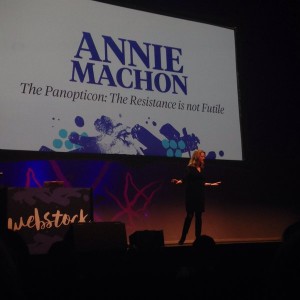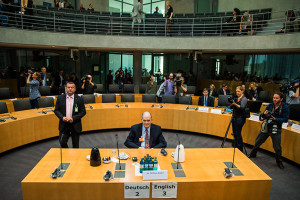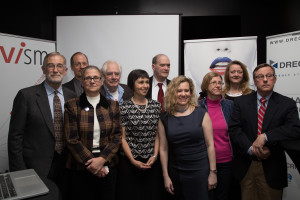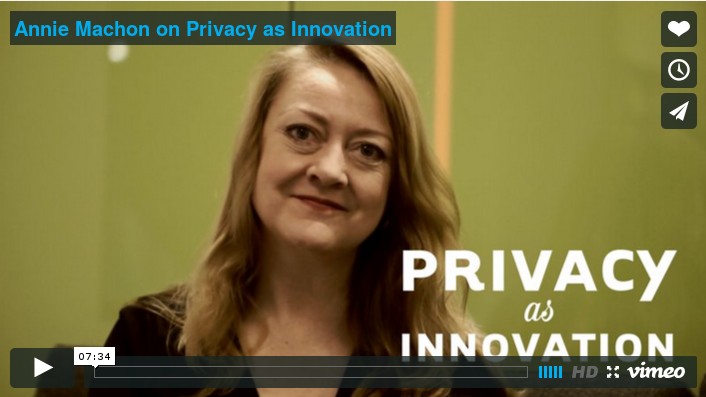My written evidence to the Scrutiny Committee in the UK Houses of Parliament that is currently examining the much-disputed Investigatory Powers Bill (IP):
1. My name is Annie Machon and I worked as an intelligence officer for the UK’s domestic Security Service, commonly referred to as MI5, from early 1991 until late 1996. I resigned to help my partner at the time, fellow intelligence officer David Shayler, expose a number of instances of crime and incompetence we had witnessed during our time in the service.
2. I note that the draft IP Bill repeatedly emphasises the importance of democratic and judicial oversight of the various categories of intrusive intelligence gathering by establishing an Investigatory Powers Commissioner as well as supporting Judicial Commissioners. However, I am concerned about the real and meaningful application of this oversight.
3. While in the Service in the 1990s we were governed by the terms of the Interception of Communications Act 1985 (IOCA), the precursor to RIPA, which provided for a similar system of applications for a warrant and ministerial oversight.
4. I would like to submit evidence that the system did not work and could be manipulated from the inside.
5. I am aware of at least two instances of this during my time in the service, which were cleared for publication by MI5 in my 2005 book about the Shayler case, “Spies Lies, and Whistleblowers”, so my discussing them now is not in breach of the Official Secrets Act. I would be happy to provide further evidence, either written or in person, about these abuses.
6. My concern about this draft Bill is that while the oversight provisions seem to be strengthened, with approval necessary from both the Secretary of State and a Judicial Commissioner, the interior process of application for warrants will still remain opaque and open to manipulation within the intelligence agencies.
7. The application process for a warrant governing interception or interference involved a case being made in writing by the intelligence officer in charge of an investigation. This then went through four layers of management, with all the usual redactions and finessing, before a final summary was drafted by H Branch, signed by the DDG, and then dispatched to the Secretary of State. So the minister was only ever presented with was a summary of a summary of a summary of a summary of the original intelligence case.
8. Additionally, the original intelligence case could be erroneous and misleading. The process of writing the warrant application was merely a tick box exercise, and officers would routinely note that such intelligence could only be obtained by such intrusive methods, rather than exploring all open source options first. The revalidation process could be even more cavalier.
9. When problems with this system were voiced, officers were told to not rock the boat and just follow orders. During the annual visit by the Intelligence Intercept Commissioner, those with concerns were banned from meeting him.
10. Thus I have concerns about the realistic power of the oversight provisions written into this Bill and would urge an additional provision. This would establish an effective channel whereby officers with concerns can give evidence directly and in confidence to the Investigatory Powers Commissioner in the expectation that a proper investigation will be conducted and with no repercussions to their careers inside the agencies. Here is a link to a short video I did for Oxford University three years ago outlining these proposals:
11. This, in my view, would be a win-win scenario for all concerned. The agencies would have a chance to improve their work practices, learn from mistakes, and better protect national security, as well as avoiding the scandal and embarrassment of any future whistleblowing scandals; the officers with ethical concerns would not be placed in the invidious position of either becoming complicit in potentially illegal acts by “just following orders” or risking the loss of their careers and liberty by going public about their concerns.
12. I would also like to raise the proportionality issue. It strikes me that bulk intercept must surely be disproportionate within a functioning and free democracy, and indeed can actually harm national security. Why? Because the useful, indeed crucial, intelligence on targets and their associates is lost in the tsunami of available information. Indeed this seems to have been the conclusion of every inquiry about the recent spate of “lone wolf” and ISIS-inspired attacks across the West – the targets were all vaguely known to the authorities but resources were spread too thinly.
13. In fact all that bulk collection seems to provide is confirmation after the fact of a suspect’s involvement in a specific incident, which is surely specifically police evidential work. Yet the justification for the invasive intercept and interference measures laid out in the Bill itself is to gather vital information ahead of an attack in order to prevent it – the very definition of intelligence. How is this possible if the sheer scale of bulk collection drowns out the vital nuggets of intelligence?
14. Finally, I would like to raise the point that the phrase “national security” has never been defined for legal purposes in the UK. Surely this should be the very first step necessary before formulating the proposed IP Bill? Until we have such a legal definition, how can we formulate new and intrusive laws in the name of protecting an undefined and nebulous concept, and how can we judge that the new law will thereby be proportionate within a democracy?




